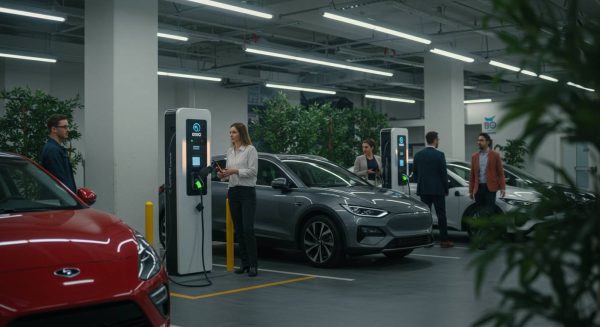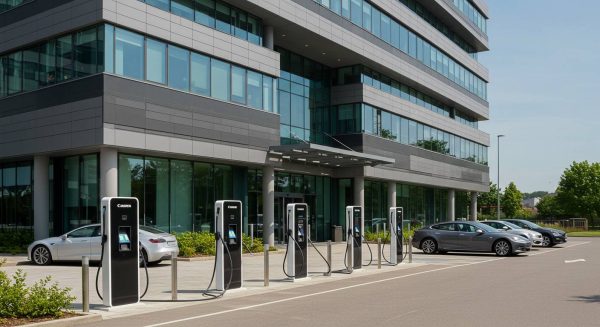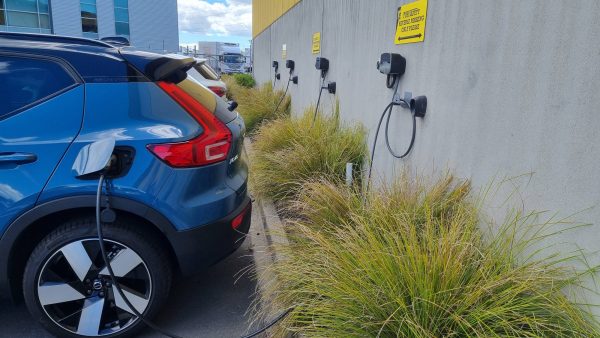The transition to electric vehicles (EVs) is accelerating rapidly in the UK. As more employees switch to EVs, workplace charging is becoming an increasingly important consideration for employers. But what do businesses need to know about the latest regulations and requirements?
The Role of Workplace Charging
Workplace charging serves as a crucial piece of the UK’s EV charging puzzle. For employees without off-street parking at home, having access to charging at work can make owning an EV much more feasible. According to the government’s EV Infrastructure Strategy, workplace charging currently accounts for about 15% of all EV charging demand, with most charging sessions occurring when employees arrive in the morning between 8-10 am.

Smart Charging Requirements
From June 2022, all new workplace charge points must have smart charging capability under the Electric Vehicles (Smart Charge Points) Regulations 2021. Think of smart charging like a smart thermostat for your EV—it can automatically adjust charging times and rates based on factors like electricity prices and grid demand.
These smart chargers must include:
- The ability to delay or adjust charging times
- A default setting that avoids peak electricity demand periods
- Cybersecurity measures to protect the system
- The capability to respond to energy tariff information
Financial Support Available
The government’s Workplace Charging Scheme (WCS) continues to provide support for businesses installing charge points, though it has been reformed to focus particularly on small accommodation businesses and the charity sector. The scheme can cover up to 75% of purchase and installation costs, to a maximum of £350 per socket, for up to 40 sockets across all sites.
Building Regulations Changes
For employers constructing new buildings or undertaking major renovations, the requirements go further. Since June 2022, new non-residential buildings with more than 10 parking spaces must have at least one charge point and cable route for one in five spaces. This future-proofs buildings for increased EV adoption.

Planning for Power Supply
One often-overlooked aspect is ensuring adequate electrical capacity. The Distribution Network Operators (DNOs) who manage local power networks need to be consulted about connections, particularly for multiple charge points. According to the government’s infrastructure strategy, connecting several fast chargers could cost tens of thousands of pounds, depending on local grid capacity.
Benefits for Employers

Installing workplace charging isn’t just about compliance—it can bring significant benefits. Smart charging capabilities mean businesses can take advantage of lower off-peak electricity rates. Some charge point operators also offer revenue-sharing models where businesses can earn income from public use of their chargers outside working hours.
Looking Ahead
The government estimates there will be up to 10 million EVs on UK roads by 2030. While most charging will happen at home, workplace charging will play a vital role in the transition. Think of workplace chargers like the office coffee machine—not everyone will need it every day, but having it available makes coming to work much more convenient for those who do.
The key for employers is to plan ahead, understand the requirements, and ensure any charging infrastructure installed today is future-proof and compliant with current regulations. Working with qualified installers and taking advantage of available grants can help make the transition both smoother and more cost-effective.
